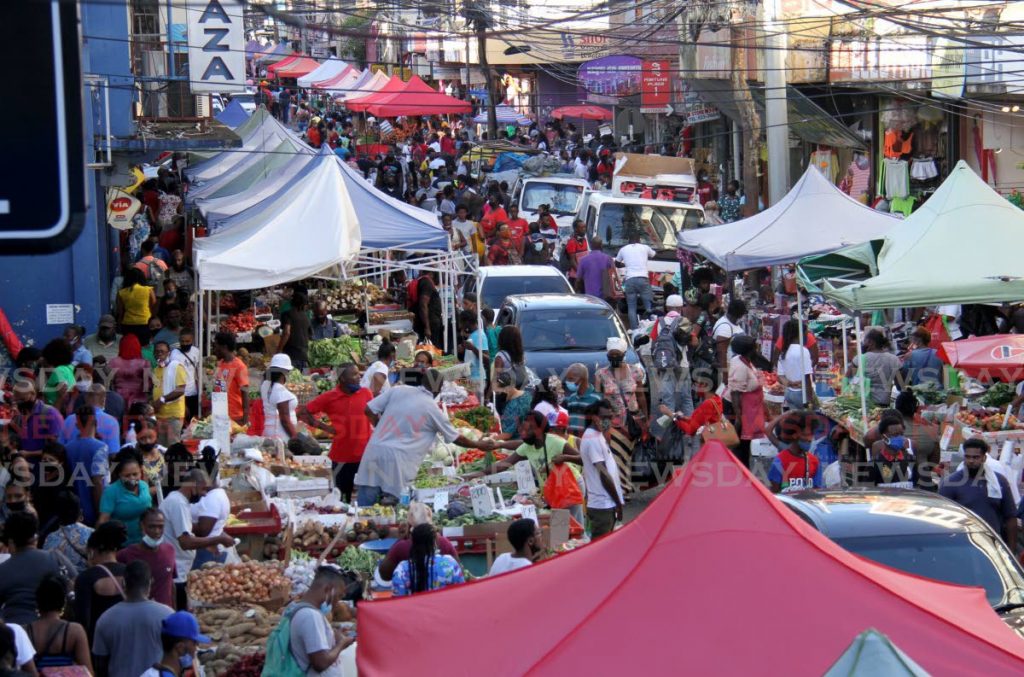Development in Latin America, Caribbean worst affected in 2020

The executive secretary of the Economic Commission for Latin America and the Caribbean (ECLAC), Alicia Bárcena, has reported that Latin America and the Caribbean was the region hardest hit in the developing world by the covid19 pandemic, with a drop in 2020 of -6.8 per cent, the largest since 1900.
She spoke at last week's 25th Annual Conference of CAF (Development Bank of Latin America), which was held virtually as a result of the covid19 pandemic.
At the CAF 2021 dialogue, figures and leaders of the region discussed for two days the main challenges facing the region and especially the consequences of the pandemic.
Bárcena said in 2021 the region will grow 5.9 per cent, "but it is not enough to offset the fall," she said.
"In 2022 there will be a slowdown in the economy and we will return to mediocre growth levels (2.9 per cent)."
She said this reflects inequity in access to vaccination and the structural problems the region presents, such as low investment and loss of informal employment.
Bárcena reported owing to the crisis, the number of employed people in Latin America and the Caribbean fell by 25 million, 13 million of whom are women, a sharp drop in the female participation rate.
Poverty increased to 33.7 per cent, 22 million people more than in 2019. The digital divide also grew.
"We propose to go towards digital universality. Today we have 66.2 million homes with inadequate connectivity," she said.
She said for the recovery of the region, investment is needed.
"We are going to require liquidity, external financing, and it is very important to orient it towards investment that is green, sustainable, generates employment and lowers the environmental footprint," she added.
Likewise, the challenges to achieving economic growth in the region were discussed.
Alberto Fernández, president of Argentina, said Latin America and the Caribbean "face the challenge of a new beginning," after which "we are either reborn better or reborn worse."
Fernandez said the region faces a triple crisis: climate, health and foreign debt.
"We must understand there will be no environmental justice, without global financial justice and without global social justice," said Fernández. "It is the time for solidarity, and this solidarity begins in our own region."
Among others, he mentioned that his country together with the US, Barbados, Colombia, Costa Rica, Panama and the Dominican Republic have proposed different initiatives to advance the reorganisation of financial architecture that allows "a new global, inclusive contract and sustainable."
This contract, he said, would have the objective of giving value to environmental assets and promoting new innovative sources of financing, as well as strengthening environmental multilateralism, debt swaps for climate action and payment mechanisms for ecosystem services, among others.
María Claudia Lacouture, former minister of commerce and tourism of Colombia, highlighted the importance of generating jobs in these countries, saying it was is the way to reduce economic inequalities among citizens.
“The best way to reduce social inequalities and the increase in poverty brought on by the pandemic is to create jobs in all countries,” said Lacouture.
Education Minister Nyan Gadsby-Dolly was TT's representative at the conference.
Gadsby-Dolly was invited as a speaker at the forum on The Lost Year, focused on the effects of the pandemic of covid19 in the educational system.
She said all schools have been asked to do diagnostic tests on their students so teachers can determine how well they are doing.
She said TT is handling the face-to-face return to class with the flexibility of each school deciding how to reopen.
“We have a hybrid system and we have asked the schools to follow our guidelines and one of them is the number of students to go back to school,” said Gadsby-Dolly.
She added: “Now the students will be asked for things like the bubble effect. We must measure incidents of violence, also health measures against covid19 with a general cleaning plan in schools. We are closely watching the performance of our students.
“As for the teachers, we are evaluating training in online methods. Teachers are now adept at managing services with existing environment. They also have the necessary emotional and technical support for their return to the classroom.”
Organised since 1997 together with the Inter-American Dialogue and the Organization of American States, CAF's annual conference is one of the main hemispheric meetings that allow debate on and analysis of major political, economic, and social trends in Latin America and the Caribbean.

Comments
"Development in Latin America, Caribbean worst affected in 2020"